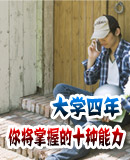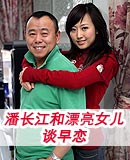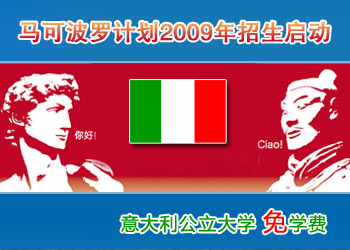 |
|
|
|
名师总结关键词:郭敬明的托福词汇http://www.sina.com.cn
2008年05月07日 10:01 新浪教育
美国纽约时报近日评郭敬明的文章,声称郭是最成功的中国作家,引述如下。大家雅鉴。 下文包含高频托福词汇或词组,建议打开金山词霸“屏幕取词”功能,把鼠标放在单词上,中文意思就可以自动出来,这样可以边浏览,边学习或者复习托福词汇。要是能结合着王玉梅词汇书,把相关的单词再交叉找出来,那就更好了。 坚持到底,学习愉快! The most successful writer in China today isn’t Gao Xingjian (高行健), the winner of the 2000 Nobel Prize, or even Jiang Rong(姜戎), the author of the best-selling novel “Wolf Totem,”(狼图腾) just released in the United States. It’s 24-year-old Guo Jingming, a pop idol whose cross-dressing, image-obsessed persona has made him a sensation in a country where the Communist dictatorship advocates prudery and heterosexuality. Thousands of teenagers — his readers are rarely over 20 — flock to Guo’s signing sessions. Some post frenzied declarations of love on his blog: “Little Four, I will always be with you!” (Guo’s nickname comes from “fourth dimension war,” a random quotation he found in a magazine.) Alongside adoring letters addressed to “Big Brother Guo,” the author posts pictures of himself half-naked in the shower, in his underwear or swathed in Dolce & Gabbana accessories and Louis XIV-style shirts. Guo is hardly universally beloved. Last fall, he was voted China’s most hated male celebrity for the third year in a row on Tianya, one of the country’s biggest online forums. Yet three of his four novels have sold over a million copies each, and last year he had the highest income of any Chinese author: $1.4 million. The most critically acclaimed Chinese novels of recent years — “Wolf Totem” (a parable about the death of Mongolian culture and a veiled critique of the Cultural Revolution), Yu Hua’s “To Live,” Mo Yan’s “Republic of Wine” — generally use their characters as vessels for broad social and political commentary. But Guo’s novels focus on the tortured psyches of his adolescent characters, who either nurse their melancholy by sitting alone for long hours under trees and on rooftops, or try to blunt it with drinking, fighting and karaoke. “My main goal is to tell the story well and have everyone like it,” Guo said recently in a telephone interview. Which isn’t to say he traffics entirely in escapism. For all the over-the-top melodrama and brand-name dropping, his novels’ contemporary urban settings, Guo said, are far closer to the reality of his readers’ lives than the harsh countryside of China’s modern classics. And his frothy novels, though often denounced as “chain-manufactured writing,” do reflect social issues in their own way. The editor of Guo’s first novel, “City of Fantasy” — about the 350-year-old prince of an Ice Kingdom who is forced to kill his younger brother to protect the throne — told one of China’s leading newsweeklies that he had decided to publish the novel because it would appeal to the lonely children of China’s one-child generation. Guo is the most successful of a dozen young celebrity authors who make up the “post-’80s” generation, some others of whom have also achieved book sales in the millions. This group includes the high school dropout and professional car racer Han Han, 25, who derides China’s inefficient educational system in his novels and regularly insults older, more established artists on his blog, and Zhang Yueran, 26, whose novel “Daffodils Took Carp and Went Away” features a bulimic girl who falls in love with her stepfather, is mistreated by her mother and is sent off to boarding school. While the Chinese government frequently jails dissident writers or forces them into exile, it mostly ignores the antics of Guo and the other post-’80s writers. For all their flamboyance, they exemplify the social ideals of the new China — commercialism and individualism — said Lydia Liu, a professor of Chinese and comparative literature at Columbia University. They “don’t pose any threat,” Liu said. “They collaborate.” Tao Dongfeng, a professor at Capital Normal University 首都师范大学 in Beijing who has harshly criticized some post-’80s writers for their lack of social conscience and their reliance on overblown fantasy elements, said young fans see authors like Guo less as writers than as “entertainment idols.” “What they write isn’t important,” he said. “What’s important is Han Han’s looks, the cars that he drives.” 特别说明:由于各方面情况的不断调整与变化,新浪网所提供的所有考试信息仅供参考,敬请考生以权威部门公布的正式信息为准。
【发表评论】
不支持Flash
|
||||||||||||||||||||||||



